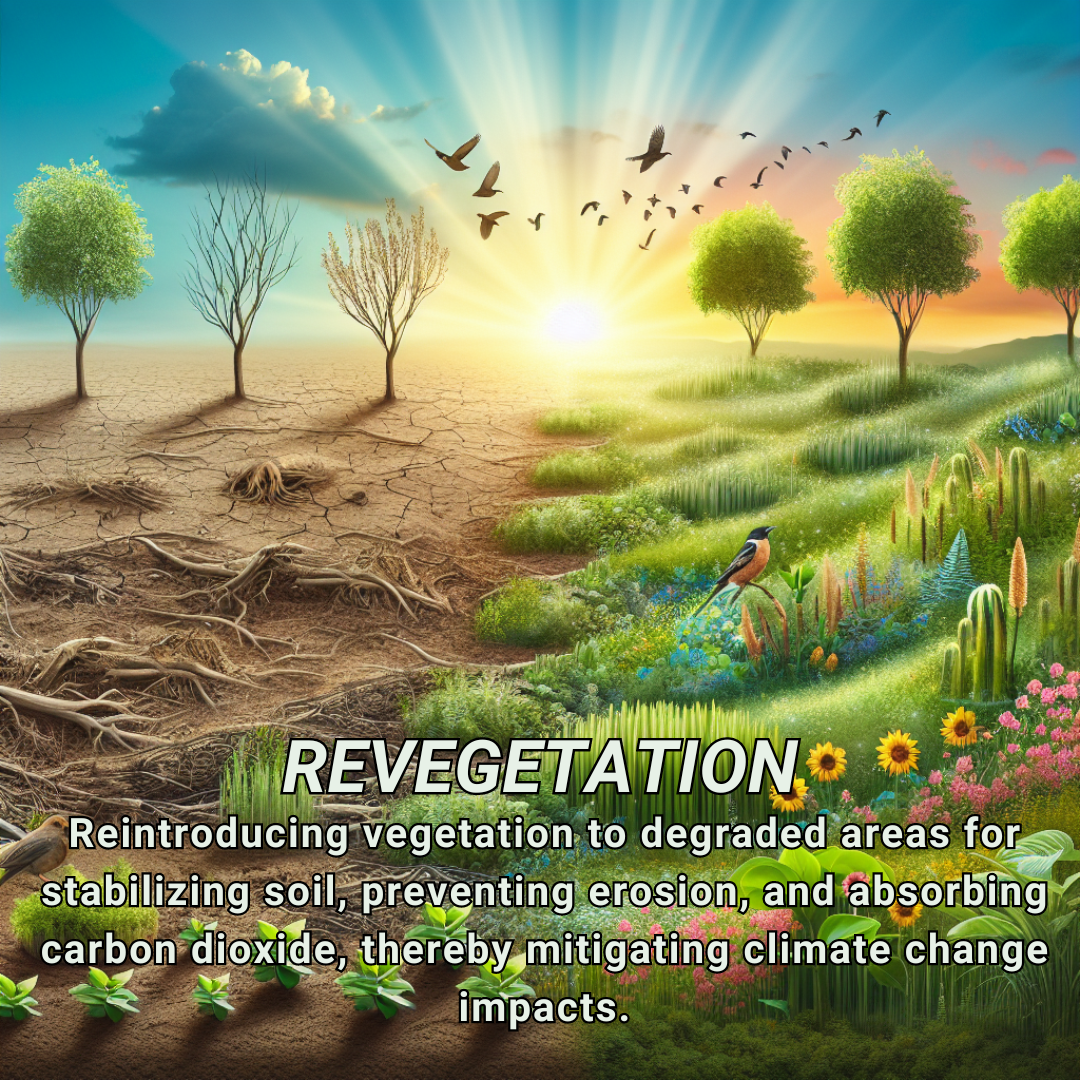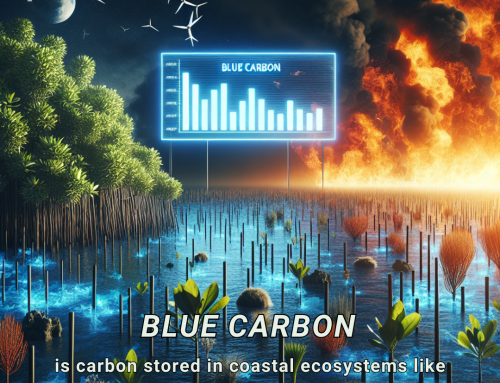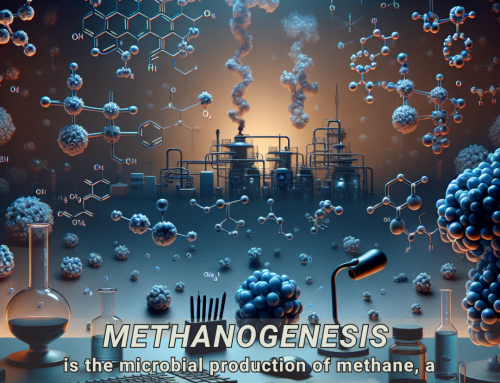Project Description
Revegetation refers to the deliberate process of reintroducing vegetation to an area that has been previously degraded or deforested. This restoration practice involves planting native species or allowing natural regeneration to occur, with the aim of stabilizing soil, preventing erosion, enhancing biodiversity, and mitigating climate change impacts.
Connection to climate change: Revegetation plays a crucial role in climate change mitigation and adaptation. By absorbing carbon dioxide from the atmosphere through photosynthesis, plants help to reduce greenhouse gas concentrations, thus mitigating global warming. Additionally, revegetation projects contribute to climate resilience by restoring degraded ecosystems, enhancing water retention, and providing habitat for wildlife, thereby mitigating the adverse impacts of climate change such as extreme weather events and habitat loss.








